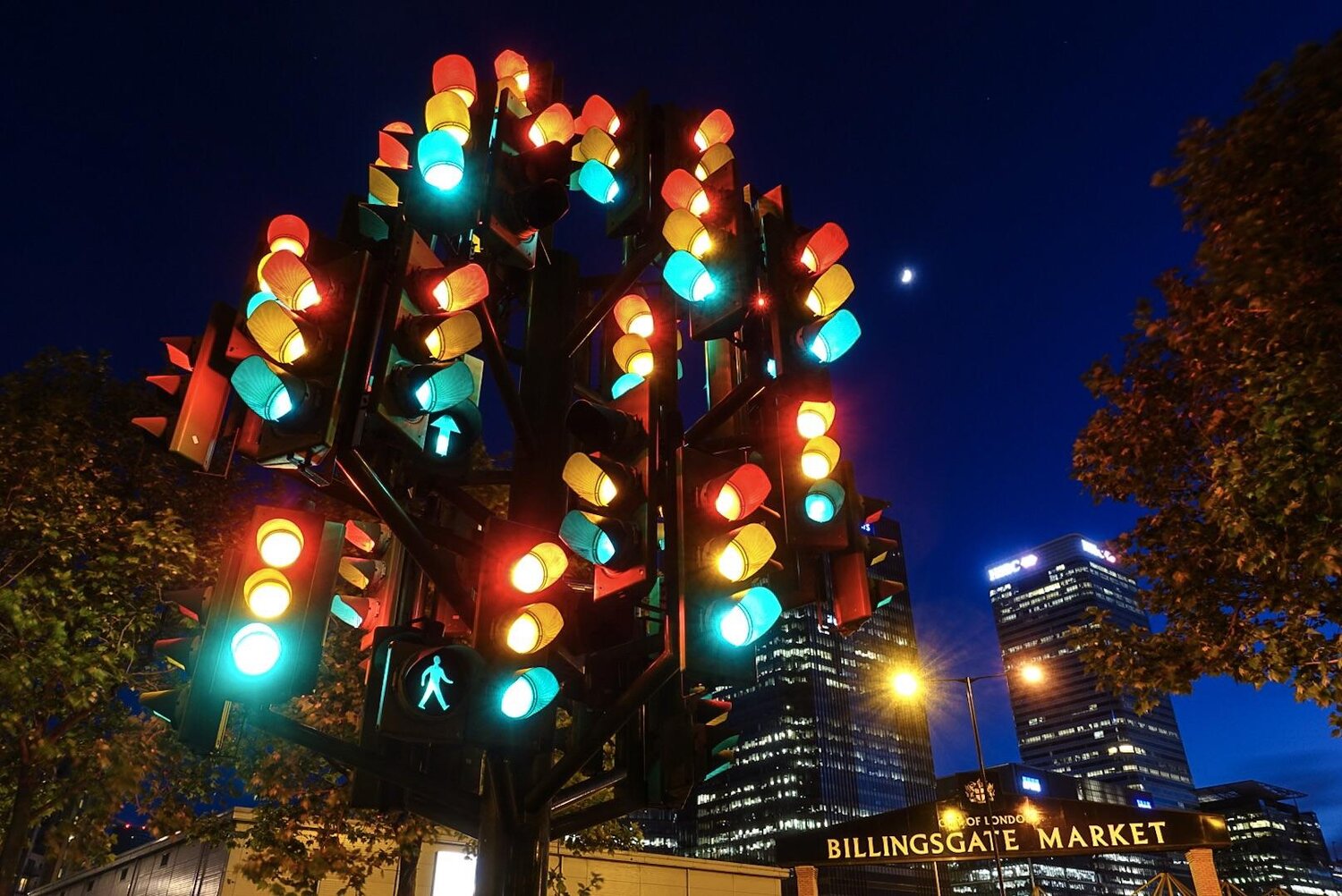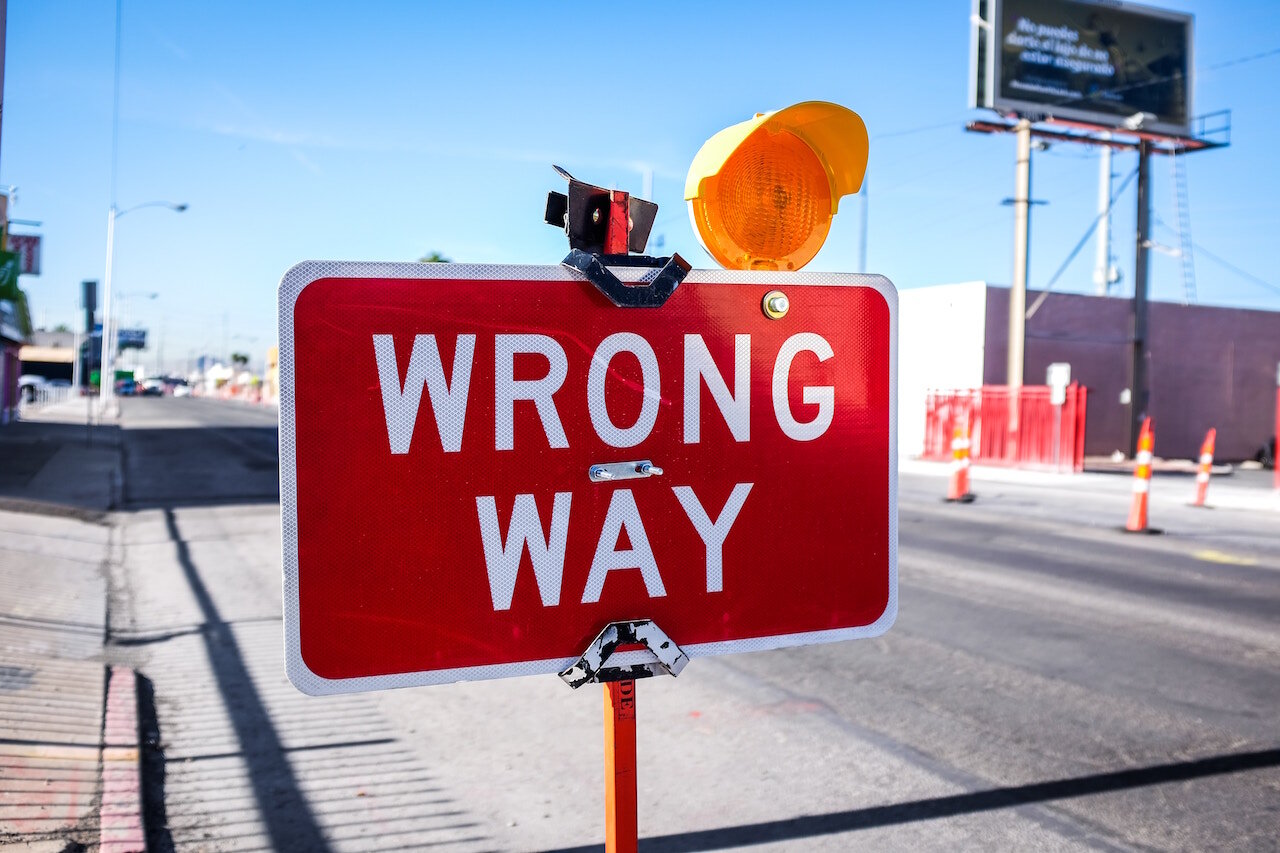When was the last time you made a really bad decision?
I’m not talking about that roadside hotdog on the way home yesterday. I’m referring to the ‘one bad decision ruined my life’ instances – where you’re still dealing with the fall-out of your lack of judgment months, or even years later.
My own wall of shame is pretty impressive, so I'm not exactly throwing stones. That's why I decided to dig a little deeper into the psychology behind bad decision-making.
The neuroscience behind bad decisions
For the longest time, philosophers believed that people made bad decisions because they were too focused on emotion and not dedicated enough to applying logic. They were convinced that by simply calculating rationally what was in our best self-interest, we’d never get it wrong.
In the 1800s, economist Adam Smith applied this thinking to lay the foundation for most modern-day free-market economies. In his utopian view, goods and services would be exchanged guided only by an ‘invisible hand’ of collective self-interest.
You don’t have to look too far to see the harmful impact of an economic paradigm that only puts self-interest at its heart. Besides, advances in neuroscience show that emotions play at least as important a role in good decision-making as logic does.
Here’s why: the rational parts of the brain are centred in the frontal lobes, while most of our emotional structures are based in the Amygdala, which sits deep in the brain’s medial temporal lobe.
People with damaged Amygdala are less likely to feel emotions. Interestingly, they also struggle with making even the most elementary decisions. That’s because effective decision-making is impossible without emotional input.
Our feelings and intuition give meaning to our choices, so if you’re unable to access your emotions, choosing literally becomes impossible.
Choice maximisers versus choice satisficers
American psychologist Barry Schwartz says there are two types of decision-makers – maximisers and satisficers.
Maximisers are perfectionists. They’ll consider every possible alternative imaginable because to be sure that whichever decision or purchase they make, it’s the best out of the bunch.
Satisficers think differently. They apply specific minimum criteria, but they’re quite happy to settle for any option that’s good enough – even if it’s not necessarily the best option.

Research shows that satisficers lead far less stressful lives than maximisers. They’re also consistently happier. Schwartz blames this on the curse of discernment, which is where a maximiser’s rising expectations in life can no longer keep pace with the choices they’re presented with.
He proposes a simple solution:
“If you’re out to find ‘good enough’, a lot of the pressure is off, and the task of choosing something in the sea of limitless choice becomes more manageable.”
In other words, choosing something good enough – even if it’s not your best choice – will probably make you the happiest.
Good enough choices versus safe choices
Settling for good enough doesn’t mean settling for the safe option. Indeed, as entrepreneur Derek Sivers puts it:
“Every time you’re making a choice, one choice is the safe/comfortable choice, and one choice is the risky/uncomfortable choice. The risky/uncomfortable choice is the one that will teach you the most and make you grow the most, so that’s the one you should choose.”
And even if that choice didn’t play out, at least you’ll have pushed your skills and capabilities to another level. You’ll also have received valuable feedback for the future.
“A mind that is stretched by a new experience can never return to its old position.” – Oliver Wendell Jones Jr
Below, I’ll set out thirteen reasons I’ve come across in my practice as an online coach why you end up making poor choices.
1) You gave yourself too many choices
Choice overload leads to choice paralysis.
If you’re a maximiser, the sheer volume of choices means you can no longer do the maths, so you freeze and decide not to choose at all. Satisficers also feel the pinch of having too many options available. Instead of finding out which one fulfils their minimum criteria, they settle for the easiest one.
Overload makes it more likely you’ll either end up regretting your choice, or the alternative choices you didn’t make.
Professor Sheena Iyengar at Columbia Business School calls this the paradox of choice.
“Adding options to people’s lives can’t help but increasing people’s ideas about how good those options will be. This will produce less satisfaction with the produced results, even if those results are good.”

2) You weren’t in a peak state
In a previous article about the future self, I wrote at length about peak states. I don’t mean getting high on margaritas or that mystery bag you found on the dance floor – unless you like the thought of waking up with a face tattoo.
Abraham Maslow described peak experiences as “the rare, exciting, oceanic, deeply moving, exhilarating, elevating experiences that generate an advanced form of perceiving reality, and are even mystic and magical in their effect upon the experimenter.”
When you’re in a peak state, you operate from a position of growth and flow. When you’re in that frame of mind, your decisions will be strong and impactful. Outside of it, they’ll be weak and small-minded.
You can get yourself into a peak state by stepping out of your usual routine and spending time in environments optimal for learning and growth. For example, suppose you have a big decision looming. In that case, you might want to take yourself to the countryside for a few days, spending time in nature and feeling inspired.
3) You researched your choices to death
There’s some superficial logic behind the idea that the more information you have, the better your decision.
The trouble is that past a certain threshold any additional information will only lead to confusion.
Our brain likes it when we can fill in the gaps because it reduces uncertainty. But an information quest can quickly lead us down some deep rabbit holes – especially when knowledge and data are so easy to come by these days.
The trick isn’t to find more information but to find the right information.
As Psychologist Ron Friedman points out:
“In a world where every click brings the promise of discovery, we’re all at risk of becoming addicts. The challenge lies in differentiating between questions worth exploring and questions best left unasked.”

4) You over/underestimated your future self
We find it much easier to remember who we were ten years ago than to imagine who we might become ten years from now. And because we can’t imagine it, we think it’s not going to happen.
Many of the decisions we make follow a process called affective forecasting. This happens when we try to predict how a decision's outcomes will make us feel in the future.
The trouble is that we routinely overestimate our decisions' future impact, regardless of whether we think the outcome will be good or bad.
Author Kate Douglas puts it well when she says:
“Remember that whatever the future holds, it’ll probably hurt or please you less than you imagine.”
Unless that choice involves a roadside hotdog or a face tattoo.
5) You procrastinated
Many people are indecisive procrastinators. If you think you’re one of those, please never take me shopping with you.
An indecisive procrastinator finds decision-making hard because they know that choosing one course of action leads to excluding many alternative courses of action.
The internal discord this triggers often leads indecisive procrastinators to postpone their decision. They’d rather agonise over which Netflix series to watch next.
Here’s a pro-tip: to avoid ending up in decision procrastination hell, always set yourself a deadline for making your decision.
6) You didn’t pass the buck
Market economies thrive on the idea that plenty of choices is always a good thing.
A trip to any US diner quickly tells you the opposite. As a European, being forced to choose between ten different types of fries is deeply distressing, and so is the over-the-top friendly waitress.
Worse, even if I happen to enjoy the fries I’ve chosen, the maximiser in me is stressed that there may have been an even better choice on the menu.
The trick is to delegate decision-making. When you realise you can’t easily get hold of the information necessary to make an educated choice, you ask someone else who can.
If you can’t tell your Malbec from a Merlot, let your dinner date pick the wine. It saves you ten minutes of pretending that you’re not going for the second-cheapest option.
And trust me, always mix your fries with gravy and mayo. I’m Belgian – I know my potatoes.
7) You weren’t systematic
Satisficers take note: Always. Do. Your. Homework.
That homework involves putting a logical and structured process in place so you can take a detailed look at the pros and cons of each option.
Especially when it comes to the bigger decisions in life, being systematic allows you to think of all factors to consider before coming to a conclusion. It also allows you to score the alternatives for each of those factors.
From decision-making trees to paired analysis, there are plenty of tools and techniques available online to help you identify and rank your options – either on your own or as part of a team.
8) You were all brain and no gut
Studies show that when we feel happy, we’re more likely to be blinded by optimism. Feelings of sadness or melancholy, on the other hand, make us take a more systematic and realistic approach.
I’ve written at length about the power of intuition before, but here’s a great rule of thumb:
For small decisions, give more weight to rational arguments; for complex decisions, give more weight to your emotions.
Always take note of your physiology. If you feel your body expanding when visualising the likely outcome of a particular choice, then that’s a good sign. If you feel yourself contracting when visualising that outcome, then run a mile.
9) You were all gut and no brain
Personal development 1.0 has brainwashed you always to trust your gut.
I’d encourage you to read my previous article on intuition, where I explain why that’s pretty bad advice.
Although the mind might be infinitely powerful, the brain itself is a pretty basic tool that’s easily led astray. As a result, there are dozens of psychological biases that lead you to make bad decisions.
I’ll refer you once again to another article I wrote on this, but here are a few common ones to watch out for:
· Wishful thinking: a tendency to be over-optimistic which leads you to overestimate favourable or pleasing outcomes. ‘He has zero experience, but I’m sure he’ll learn on the job.’
· Anchoring: basing your choice on the information you gained early on in the decision-making process – even if that information turns out to be irrelevant. This often happens when we’re under significant time pressure to make a decision. (both candidates are equally qualified, but this one had a firmer handshake)
· Halo effect: where your overall impression of a person (he’s really hot) impacts your assessment of their individual traits (he’ll make a great addition to my team).
· Gambler’s fallacy: when you expect past events to influence the future. You assume that just because you’ve been successful in your last few five executive decisions, the same will happen this time. (I’m usually able to tell straight away if someone’s going to be a good fit in my team)
10) You didn’t play devil’s advocate
It’s possible that because of some skilful choices you made in the past, you’ve earned yourself a reputation for being a solid decision-maker.
The problem is that, as soon as you grow in confidence, your decision-making starts to become more reliant on gut feeling than on factual analysis. This is the point where sloppiness and errors of judgment start slipping in.
In other words, you get cocky. You fall prey to a so-called confirmation bias, where you only look at data that confirms your existing beliefs.
We all make that mistake of relying purely on past experiences. Indeed, often we only seek out information that confirms we’re making the right choice. We should be doing the opposite and actively seeking out evidence that proves how wrong our preferred option might be.
11) You didn’t get an outside opinion
Colleagues, family, friends, and coaches can add great insights and help you make better choices. It’s useful getting others on board early in the decision-making, especially if you depend on them for implementation.
If you’re not keen on involving others – or if you don’t have access to anyone – you can always apply a technique called trusting the crowd within.
You start by visualising what advice you would give to a close friend if they presented you with the same scenario and choices. In psychology, this is known as dialectical bootstrapping. It helps you zoom out and broadens your perspective.
12) You thought there was only one right decision
Author Susan Jeffers says we need to switch from a no-win mindset to a no-lose mindset. For maximisers, this can be a tough nut to crack.
A no-lose approach takes you out of the belief that decision-making is binary – in other words, that a decision is either right or wrong.
No-lose encourages you to look at your options as being part of a continuum. On one end of that continuum, there are some options with terrible outcomes. On the opposite end, there are options with excellent outcomes. Most of your realistic options will lie somewhere in the middle. They’re not exceptional, but they’re also not terrible.
This is where choice satisficers get it right – good enough is good enough. So, maximisers: instead of wondering if you made the right decision or the wrong one, remind yourself that your choice was a decent one.
13) You didn’t pull the plug in time
Some decisions imply serious financial or emotional investment. Because we’ve invested so heavily, it can be difficult to extract ourselves, even when it’s crystal clear that this decision harms us or those around us.
In psychology, they call these investments sunk costs. We become so fixated on proving that we made the right choice, that we become unwilling to pull out when we should. After all, we put in all that hard labour. Cutting our losses now would mean accepting defeat publicly, and who wants that?
As Seth Godin says in his book The Dip, the best way to find out whether you’ve reached a dead end is to ask yourself:
“Is this a project that is going to respond to my guts, effort and investment?”
If it’s a yes, then commit and invest. If it’s a no, then get the hell out.
Conclusion - just decide already
It’s easy to fall into the trap of thinking ‘one bad decision ruined my life’. Just remember there’s no such thing as the right decision. Some choices are better than others, so focus on just making a decision that’s good enough.
When considering your options, find a balance between being systematic and being emotional. Remember:
· Limit your choices
· Only make decisions when you’re in a peak state
· Focus on finding the right information to help you decide
· Don’t overestimate the impact of your decision
· Don’t procrastinate
· Delegate decision-making to an expert
· Be systematic
· Check in with your emotions
· Beware of psychological bias
· Seek information that proves how wrong you are
· Ask for advice
· Move from a no-win mindset to a no-lose mindset
· Beware of sunk costs
And by the way
Want a practical step-by-step breakdown on how to find your way through making a difficult decision?
Click here to download my free guide with 12 Easy Steps To Help You Make Tough Decisions In Life.plenty of tools and techniques

